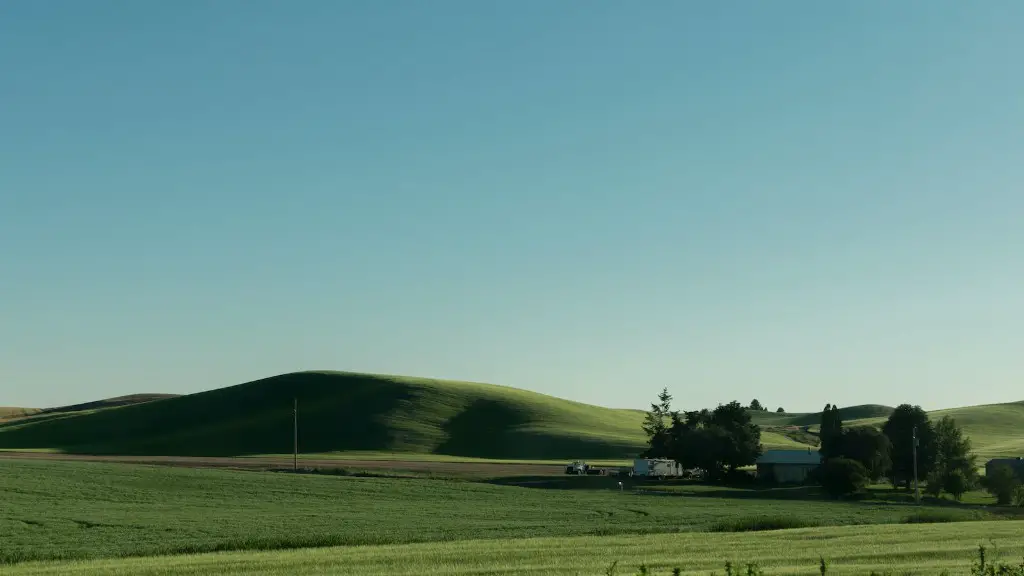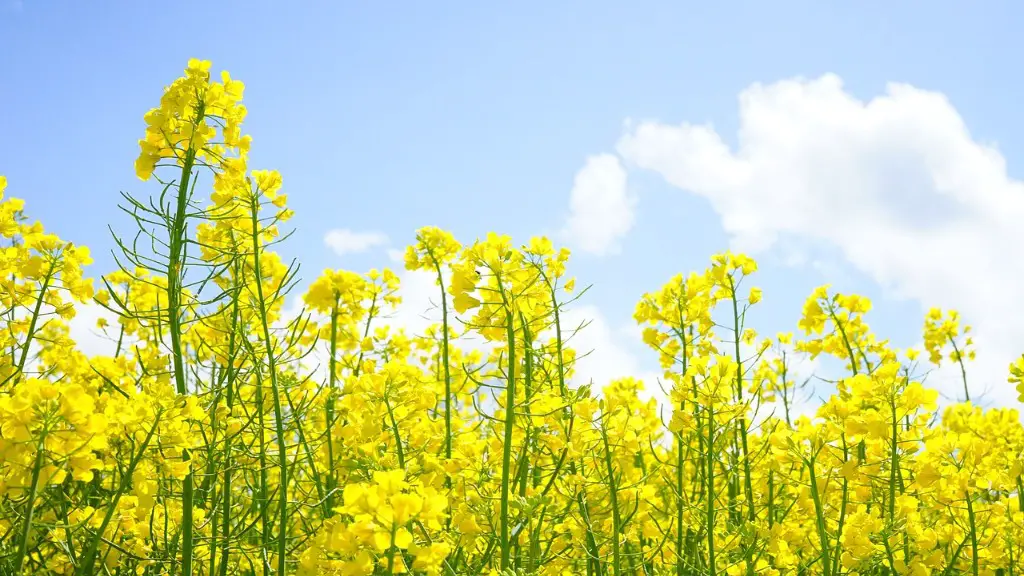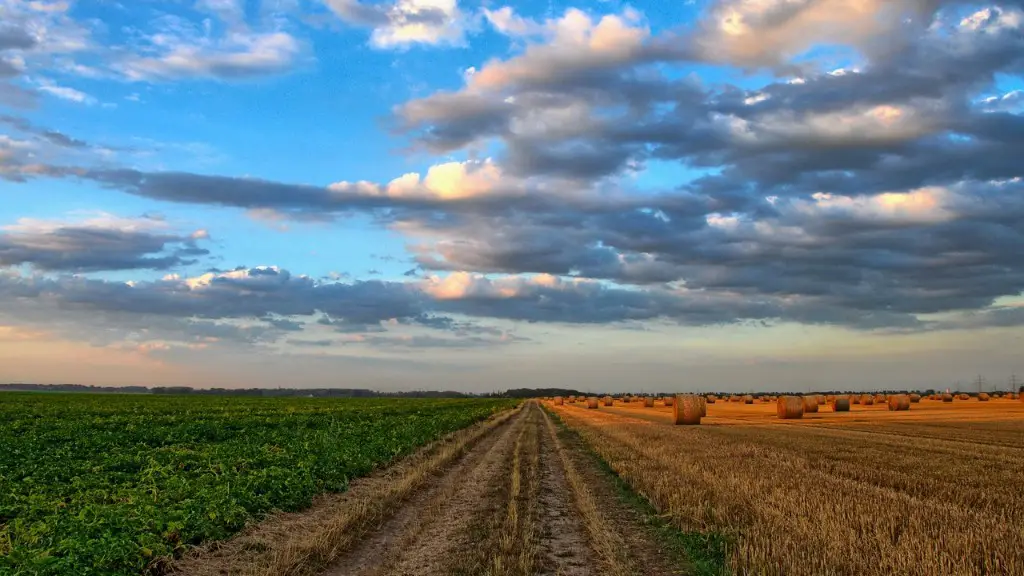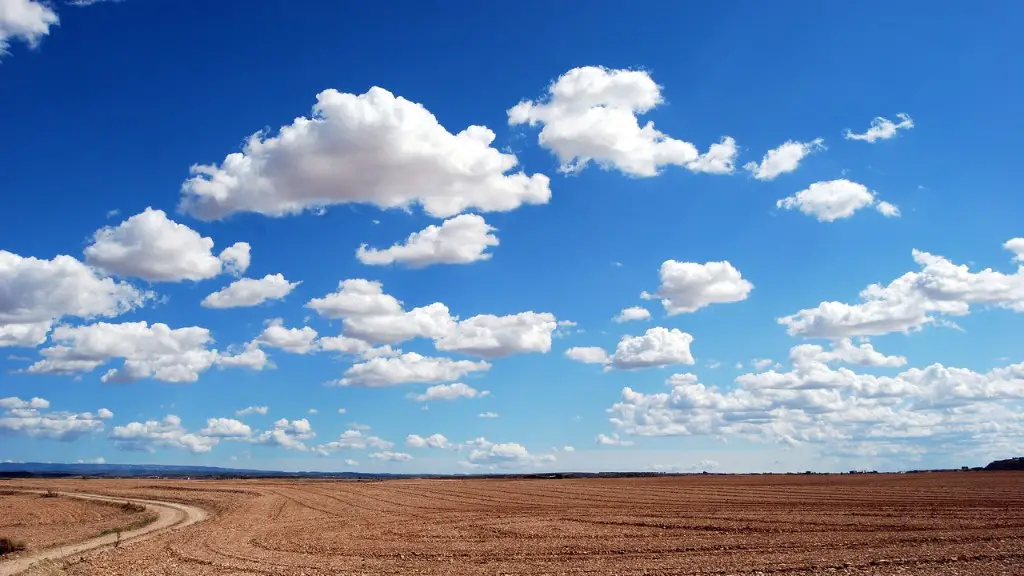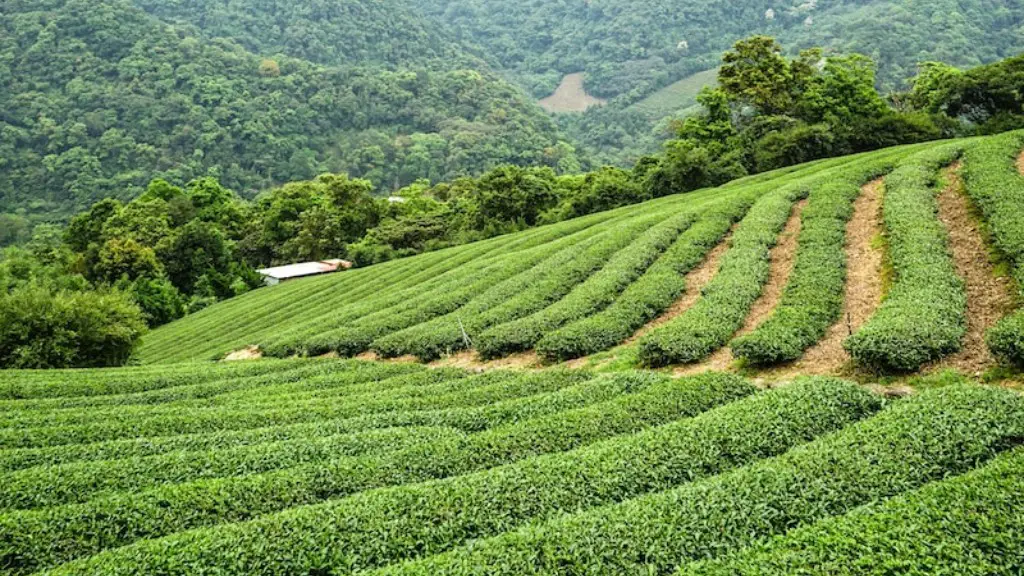One of the main ways agriculture can affect water shortages is by the agricultural production itself. If farmers are not using irrigation systems or if they are using inefficient irrigation systems, this can lead to water shortages. Another way agriculture can affect water shortages is through the use of chemicals and pesticides. If these chemicals and pesticides are not properly managed, they can pollute water sources and lead to water shortages.
There are a few ways that agriculture can affect water shortage. One way is through the increase in demand for water for irrigation as the world population continues to grow. Another way is through the change in land use patterns, such as the conversion of land from forest to farmland, which can impact the local water cycle. And finally, the way we use water for agriculture (for example, flood irrigation vs. drip irrigation) can also affect water availability.
How does agriculture affect the water crisis?
Agriculture is a major driver of water scarcity, as it accounts for almost 70 percent of all water withdrawals globally. This is particularly acute in developing countries, where up to 95 percent of water withdrawals are for agricultural purposes. As water scarcity becomes an increasingly pressing global issue, it is imperative that we use our natural resources more wisely, and this includes water. We must adopt more efficient irrigation practices, use drought-resistant crops, and invest in water infrastructure.
Excessive irrigation can have a number of negative impacts on water quality. One is erosion, as it can transport nutrients, pesticides, and heavy metals from one place to another. Additionally, it can decrease the amount of water that flows naturally in streams and rivers, which can lead to a buildup of selenium, a toxic metal that can harm waterfowl reproduction.
How does agriculture affect water usage
The USDA estimates that agriculture accounts for approximately 80% of the nation’s water use. In agriculture, water is used to grow fruits, vegetables, and raise livestock. Water is also used in agriculture for irrigation, the application of pesticides and fertilizers, and frost control.
Water conservation is a critical issue for farmers, as they rely on water for irrigation. There are a number of ways that farmers can conserve water, such as improving their irrigation systems, using cover crops, and managing residue and tillage. By taking these measures, farmers can help to ensure a sustainable water supply for their operations.
Does agriculture consume the most water?
Water is essential for agriculture, as it is for all life. Without water, crops would wither and die. Therefore, it is not surprising that agriculture is the largest water user worldwide, accounting for 70 percent of total freshwater withdrawals on average3. This percentage can be even higher in developing countries, where agriculture can account for up to 95 percent of water withdrawals.
While water is essential for agriculture, it is important to use this valuable resource wisely. Over-irrigation can lead to water waste and can also degrade water quality. Therefore, it is important to use irrigation techniques that are appropriate for the local climate and soil type, and to monitor water use to ensure efficient and responsible use.
Farms around the world use a lot of water every year, and on average, they account for 70% of all water that is consumed annually. A lot of that water is lost to the environment, due to poor irrigation systems, evaporation, and overall poor water management.
What is the impact of agriculture?
Agriculture is one of the leading causes of environmental degradation. It contributes to climate change, deforestation, biodiversity loss, dead zones, genetic engineering, irrigation problems, pollutants, soil degradation, and waste. All of these environmental issues have a negative impact on the planet and its inhabitants. Agriculture must be better regulated in order to protect the environment and ensure that it can sustain itself for future generations.
Farmers around the world are facing a number of challenges as they strive to produce food for an ever-growing population. They must contend with climate change, soil erosion and biodiversity loss, while also satisfying consumers’ changing tastes and expectations. At the same time, they need to invest in farm productivity and adopt and learn new technologies. And all of this must be done while remaining resilient against global economic factors.
What are the 5 effects of agriculture
Agriculture is the mainstay of many human societies, providing food, fuel and other products. However, it also has significant environmental impacts, which can be both negative and positive.
Negative impacts include soil fertility loss, eutrophication of water bodies, deforestation, climate change and pesticide pollution. These can all have serious consequences for the environment and human health.
Soil fertility loss is caused by over-farming, which can lead to soil erosion and nutrient depletion. This can in turn reduces the productivity of the land and affects the ability of plants and animals to thrive.
Eutrophication is the process by which water bodies become overloaded with nutrients, often as a result of agricultural runoff. This can lead to algal blooms and other problems such as oxygen depletion.
Deforestation is another major issue caused by agriculture. Clearing land for farming can lead to habitat loss and fragmentation, as well as contributing to climate change.
Pesticide pollution is another environmental issue caused by the use of chemicals in agriculture. Pesticides can end up in water bodies and the food chain, where they can cause harm to both humans and animals.
Despite these negative impacts, agriculture can also have positive environmental effects
Agriculture is the main source of food and raw materials for many industries. It is also a major source of employment and income for many people.
The following are some of the reasons why agriculture is important:
1. It’s the main source of raw materials.
2. It’s important to international trade.
3. It plays a big role in a nation’s revenue.
4. It provides employment.
5. It’s crucial to a country’s development.
6. It can help heal the environment.
7. It goes hand-in-hand with war.
8. It’s a vital part of the food chain.
9. It’s a source of renewable energy.
10. It’s an important part of the global economy.
What are the negative effect of agriculture on the environment?
Nitrogen is a gas that is present in the air. It is also found in the soil and in water. When it accumulates in large amounts, it can be harmful to the environment and to human health.
Nitrogen can harm plants by causing them to grow too fast. This can lead to the death of the plant. Nitrogen can also kill animals and fish. When it accumulates in water, it can make the water unsafe to drink.
Nitrogen can also cause pollution. When it is released into the air, it can contribute to the formation of smog. It can also contribute to the greenhouse effect, which can lead to global warming.
Nitrogen is an important element for life on Earth. However, it is important to keep it in balance. Too much nitrogen can be harmful to the environment and to human health.
There are two large problems facing agriculture in the modern world. The loss of agricultural land through erosion and manmade factors is one of them. The other is the increasing lack of diversity in crops.
Loss of agricultural land is a huge problem because it means that there is less land available to grow crops. This can be a problem because it can lead to food shortages. Additionally, it can also lead to environmental problems, as agricultural land is often used as a buffer against things like floods and landslides.
The lack of diversity in crops is also a problem because it means that there is less genetic variation in crops. This can be a problem because it means that crops are more susceptible to diseases and pests. Additionally, it can also lead to malnutrition, as a lack of diversity can lead to a lack of essential nutrients in the diet.
What is the biggest challenge facing agriculture today
1) Production expenses: With input costs on the rise and farm profitability generally tight, how will farmers be able to keep their operations afloat in the coming years?
2) Farmland markets: After years of strong farmland prices, will the market start to cool off or even decline in the next few years?
3) Another year of strong farm income?: The agricultural sector has enjoyed several years of strong profitability, but will this continue in the face of various headwinds?
4) Grain stocks: Global grain stocks are currently at multi-year lows, which could lead to higher prices and increased volatility in the coming years.
5) China, China, China: As the world’s largest importer of agricultural products, China’s continued economic growth will be crucial for the agricultural sector.
6) Supply chains: With the rise of e-commerce and new entrants into the food business, will traditional supply chains be able to keep up?
7) The economy, obviously: A recession would obviously be bad news for agriculture, but even a slowing economy could put pressure on farm income.
8) Policy priorities: With a new administration in Washington, D.C., it’s unclear
There is a growing body of evidence that suggests that agriculture is the biggest source of water pollution, not human settlements or industry. Nitrate from farming is the most common chemical contaminant found in groundwater aquifers. This is a global problem that needs to be addressed.
What are three impacts of agriculture?
While agriculture can have negative impacts on the environment, it can also have positive impacts. For instance, agriculture can trap greenhouse gases within crops and soils, or mitigate flood risks through the adoption of certain farming practices. By adopting these practices, we can help to protect the environment and reduce the negative impacts of agriculture.
Agricultural water pollution is a major problem because it can lead to the contamination of groundwater and surface water. The main contributors to agricultural water pollution are nutrients, pesticides, salts, sediments, organic carbon, pathogens, metals and drug residues. The main targets for water- pollution control are to reduce the release of pollutants into the environment and to improve the quality of water used for irrigation.
Conclusion
Agriculture can contribute to water shortages in a number of ways. First, the growing of crops can lead to the depletion of groundwater supplies. Additionally, agriculture can lead to the pollution of water resources, making them unsuitable for drinking or irrigation. Finally, agricultural activities can contribute to the depletion of surface water resources, such as lakes and streams.
There are a number of ways in which agriculture can affect water shortages. One way is through the use of irrigation, which can lead to the depletion of water resources in an area. Another way is through the overuse of water for agricultural purposes, which can lead to water shortages. Additionally, agriculture can contribute to water shortages through the pollution of water resources.

